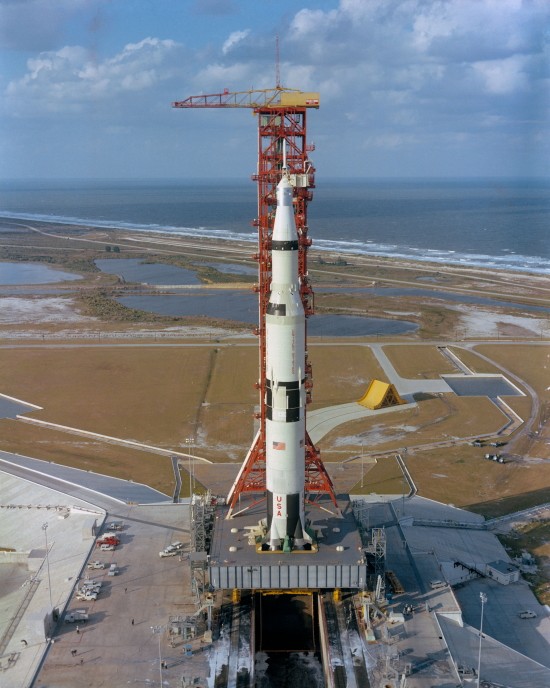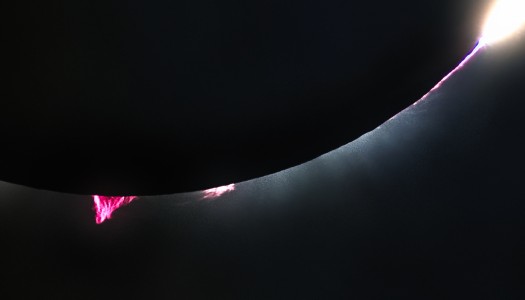55 Years Ago – The Saturn V Mega-Rocket Flies for the First Time

Fifty five years ago, on November 9, 1967, the first Saturn V rocket, carrying the unmanned Apollo 4 spacecraft, launched from NASA’s Kennedy Space Center (KSC). Scientists calculated that the noise created by the launch was one of the loudest ever on Earth, natural or man-made. The vibrations rattled the press site several miles away as the rocket cleared the launch tower. The mission objectives included testing of structural integrity of the mega-rocket, the compatibility of the rocket and Apollo spacecraft, heat shield and thermal seal integrity, overall reentry operations, launch load and dynamic characteristics, stage separations, rocket subsystems, the emergency detection system, and mission support facilities and operations. All mission objectives were achieved. NASA's Marshall Space Flight Center designed, developed, and managed the production of the Saturn family of rockets that eventually took astronauts to the Moon in 1969. Today, Marshall is developing NASA's Space Launch System (or SLS, sometimes referred to as a “Saturn V on Steroids”), the most powerful rocket ever built, capable of sending astronauts to the Moon, Mars, and deeper into space than ever before.
Comments:
Funding Member
Sponsors
- Desert Sky Astro Products
- OMI OPTICS USA LLC
- Denkmeier Optical
- Anacortes Telescope
- T.E.C
- jp Astrocraft, LLC
- Pier-Tech Inc.
- APM-Telescopes
- FocusKnobs
- SellTelescopes.com
- ASTROPHOTOGRAPHY BY MARTIN PUGH
- Matsumoto Company
- Rouz Astro
- ADM
- Astromart Customer Service
- GetLeadsFast, LLC
- AstroMart LLC
View all sponsors


